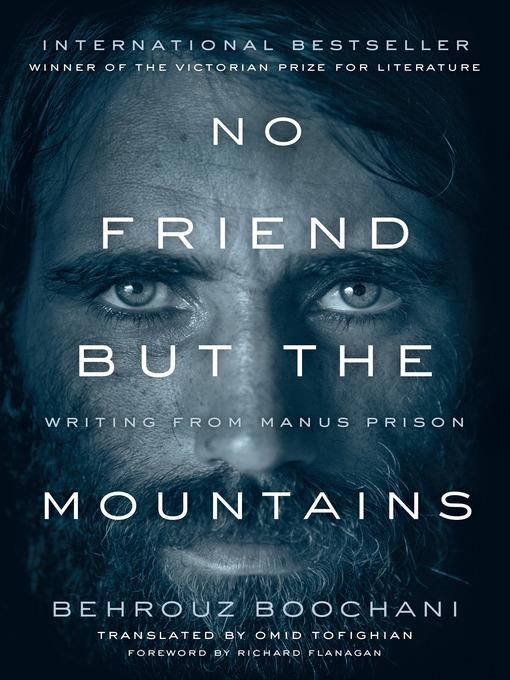
No Friend but the Mountains
Writing from Manus Prison
کتاب های مرتبط
- اطلاعات
- نقد و بررسی
- دیدگاه کاربران
نقد و بررسی

Starred review from July 1, 2019
In 2013, Kurdish journalist Boochani was illegally detained on Manus Island, a refugee detention site off the coast of Australia founded by the Australian government. He has been there ever since. Over a period of five years, the author recorded his experiences by text message to his first interpreter and translator, Moones Mansoubi, who organized them based on Boochani's instructions. Translator Omid Tofighian continues the story. The result is a modern classic of prison literature, even if the entire episode wasn't technically in a prison but a detention center in Papua New Guinea. The mix of genres addresses what it means to be human and a refugee in countries that have become, in their response to the crisis, a modern version of Hannah Arendt's "banality of evil." Boochani provides a personal look at what is happening in these gray zones of the borderlands. VERDICT This book has already received several awards for literature from the very government that caused the humanitarian crisis on Manus Island. Here readers will find a powerful firsthand account of how governments have created sites of state violence against people searching for freedom.--John Rodzvilla, Emerson Coll., Boston
Copyright 2019 Library Journal, LLC Used with permission.

May 15, 2019
Journalist Boochani, an ethnic Kurd, fled Iran, only to end up confined on Manus, a remote island in the Admiralty Islands of Papua New Guinea, since 2013. He is a victim of a refugee policy that detains, illegally, any person who attempts to enter Australia by boat. Resourceful and committed, Boochani has managed to codirect and release a film during his detention and report on the refugee crisis on Manus for international newspapers, thumbing his dispatches on a mobile phone, often using the encrypted messaging service WhatsApp. This remarkable book was composed the same way, and it won Australia's premier literary prize. Translated from Farsi, it is an imaginative and provocative mix of genres as narration, poems, reports, theory, and meditations create a remarkable assemblage that the translator deserves credit for helping shape. This is a chronicle of a government's systematic, pointless humiliation of stateless persons. Perhaps most powerfully, and in this way reminiscent of Gustav Herling's A World Apart (1951), Boochani also presents a self-portrait of a sensitive man confined in a place where suffering is pointless and endless.(Reprinted with permission of Booklist, copyright 2019, American Library Association.)

























دیدگاه کاربران